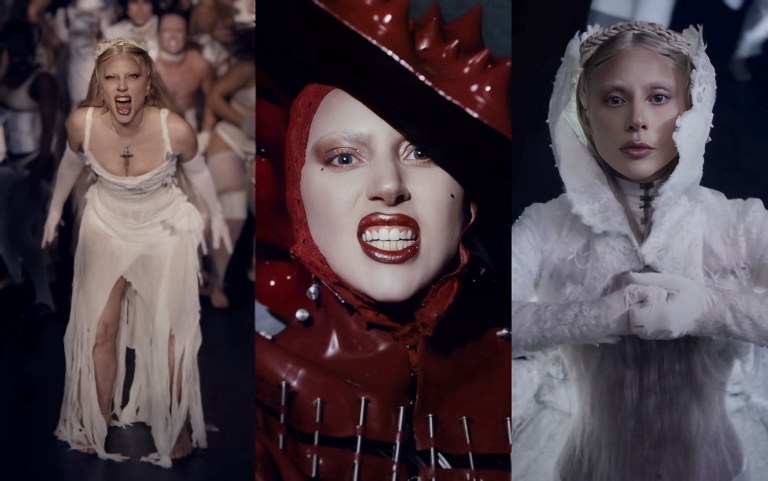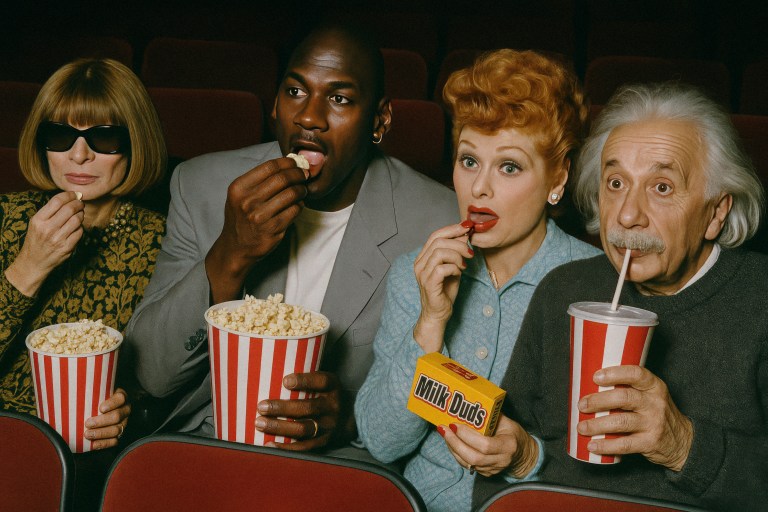
This Is What It’s Like When No One Understands Your Eating Disorder
I didn’t expect anyone to understand. ED was my friend, my source of productivity, my distraction from indulgence.
By ![]() Meghan Rook
Meghan Rook
Trigger warning: This article contains content involving anorexia and eating disorders.

“And I said to my body, softly, ‘I want to be your friend.’ It took a long breath. And replied, ‘I have been waiting my whole life for this.”
As a child, I had always been under my parents’ watchful eye and care. College was a different story.
I quickly became a party girl, surrounded by bottles of flavored Smirnoff and shots of UV Blue. To this day, I can’t even look at a blue drink without gagging.
I fell into a relationship, a bad one. He became unimpressed by my party girl ways, and swiftly broke it off. I was devastated.
However, I chose to drag it out, letting myself be emotionally abused by the rise and fall of his disinterest. I became depressed, and in turn I would eat, then cry, and wake up in the morning hating myself for being so attached to this emotionless creature. My pants began to feel tighter, though I couldn’t understand why. It never occurred to me how late night McDonalds and binge drinking could possibly spur the Freshman 15. But God forbid I stop at 15.
One morning I woke up in the hospital. I blacked out the night before and couldn’t remember what got me there. Mortified doesn’t even begin to describe my world on that morning.
I had become so disgusted with myself, and my body, that I vowed to make a change.
The summer after my freshman year I went home, joined a gym, and set to work researching ways to lose weight. The Internet was full of tips. I was engrossed in them. I spent hours each day looking up the best ways to burn fat, low-calorie breakfasts, meal supplements, how to make yourself feel full, etc.
The Internet was just begging to help me.
I quickly became addicted to counting calories. It was a numbers game. The logic was simple: calories equal bad. Exercise equals good. I logged every single calorie, down to the last pretzel, never going over my allotted 1,200. I ate the same thing every day for breakfast, lunch, and dinner, but there were some days I got so hungry that I would cave, ripping open my 140-calorie Kashi bar that had been preapproved by ED. As punishment, I would cut 200 calories from dinner.
But I never thought this was wrong, because I was getting information from reputable sources, and I was still eating enough to survive. I wasn’t one of those girls who would eat 200 calories each day and then throw it all up. I didn’t even throw up. I prided myself on all of this.
In the early stages, food would taunt me so much that I made sure not to keep any extra of it lying around the house. I would portion out just enough for each meal, making sure not to keep leftovers. My meals were so regimented that I soon became like a Pavlov dog, salivating and expecting meals when the clock hit eight, one, seven.
The time in between was spent on the elliptical. I was a madman, dropping everything and canceling plans just so I had enough time at the gym. I would burn 300 calories each session. As my sickness progressed, I’d go twice a day. I don’t know how I spared the energy.
The summer ended, and I moved into an apartment with four of my college girlfriends. I didn’t want to hang out with any of them. Their probing eyes, judging looks. The thought of eating in front of them terrified me. Actually, the thought of eating in front of anyone made me anxious. So I spent the majority of my time locked away in my room.
My eating disorder had become my best friend. ED. Though I really hated her sometimes. Like, when my stomach was gurgling or flipping inwards into nothingness and ED would say, “You can wait until dinner, Meghan.”
Whenever I needed a break from her, or the constant thoughts about eating, I would turn to my schoolwork. I became a straight A student in the semesters to follow.
By October, I could sense a dramatic change in my body. My clothes were loose, but not yet baggy. I stopped getting my period.
And still I continued on, smothered in my own self-righteousness. I didn’t expect anyone to understand. ED was my friend, my source of productivity, my distraction from indulgence. Though we didn’t always see eye-to-eye, I was happy. At least I thought so, at the time.
But the weight continued to melt away as my calorie restrictions became more and more obsessive.
I became power hungry. I was past the point of no return, falling rapidly into the belief that ED was there to help me. She calmed me down like no friend I’ve ever had before.
She gave me this false sense of purpose, like I was living for something. In reality, I was living with something. An eating disorder.
My body was collapsing in on itself, I was in a constant state of fatigue, and my reproductive system was literally shutting down. But I soldiered on.
When I came home for winter break, my dad was thoroughly unimpressed. My parents hadn’t seen me much since summer, so when I came home for break he was in shock, trying desperately to ramp up my portions at dinner, only to become exasperated when I wouldn’t finish or would simply ladle it back into the serving dish.
Sometimes, I allowed him to over serve me, and I would take a couple bites extra before stating, “Blehhhh. I’m full.” And as if the passive eye rolling wasn’t enough, I would literally feel the gag reflex in my mouth activate as the food passed through my esophagus.
That feeling right below the corners of your jaw line, when it becomes tingly and kind of numbs your whole face and makes your stomach flutter with anxiety and your brain is calculating numbers at a mile a minute and you just wish you could go back to being okay with eating something that isn’t simply a number or a tally.
This feeling reared its raging head one weekend, my mother and I had stopped to get lunch after a long morning of shopping. Fed up with my restrictive eating, she insisted on Arby’s. I was less than thrilled, but I swallowed my pride and scanned the menu for something low cal. When my food came they had got it all wrong, the sandwich was smothered in mayo, the bun looked way too delicious and indulgent. But in those days, indulgent made me sick. A heavy pit formed in the bottom of my stomach as I tried unsuccessfully to swallow back tears, and vomit. I covered my mouth and ran to the bathroom, hurling myself into a stall as I began to dry heave. Quickly the heaves turned to sobs as I huddled over myself on the floor. In the bathroom of an Arby’s.
I had reached an all-time low.
But ED was persistent. “Just one more pound and you can stop,” she would say.
At night I would lie in bed listening to the gurgling of my tummy. It had become a sort of lullaby, as it produced noise and calmed me simultaneously. I would run my hands along my body, stopping briefly along the bones jutting out of my hips, shoulders, flicking my ribcage delicately with my fingers. I lusted after my own bones. With each passing day I was closer and closer to becoming a human skeleton.
I bought a scale. I must have weighed myself a couple times a day. By February 2012, I had reached an ultimate low: 104 pounds. My clothes were no longer just loose. My 00 jeans sagged in the butt and my old body-con dress was laughably sack-like. I hadn’t gotten my period in five months. I could no longer deny that I was indeed, anorexic.
At the same time I was preparing for the fashion show my university hosted every spring for its apparel design students. I was one of the models this year (though not a signed model at this point.) The day I went in for my final fitting, my designer was in an absolute state. The dress she had so carefully crafted to my body just four months before, now hung lifelessly off my bones.
“Did you lose weight?!” she exclaimed.
I made a face as if to suggest she was crazy.
Shame on me.
After the show, a booker from a local Minnesota modeling agency came forward and handed me her business card. I believe I laughed in her face.
But my mom urged me forward, saying, “What’s the harm in trying?”
So I dragged my flat ass to that agency, and so began my modeling career. ![]()











